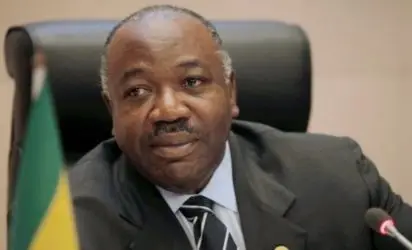Global Issues
The Coup Conundrum: Analyzing the Challenges of Government Overthrow in Africa – A Case Study of Gabon and Niger -By David Taiwo Ashaolu
Rampant corruption and economic mismanagement erode public trust in the government and hinder development efforts. Coups often occur when the military or certain factions perceive the ruling government as excessively corrupt or ineffective in addressing these issues.

Exordium:
The African continent has witnessed a number of coups and government overthrows throughout its history. These events have had significant consequences for governance, stability, and development. This article critically examines the issues surrounding coups and government overthrows in Africa, focusing on the cases of Gabon and Niger.
Historical Milieu:
Coup d’états have been a recurring phenomenon in Africa since the post-independence era. Many countries on the continent have experienced multiple coups, leading to political instability, economic setbacks, and social unrest. The reasons behind these coups are complex and multifaceted, often involving power struggles, corruption, economic mismanagement, and discontent among the population.
Gabon’s Coup Challenges:
Gabon, a country located in Central Africa, has experienced several coup attempts since gaining independence from France in 1960. The most recent attempt occurred in 2019 when a group of military officers tried to overthrow President Ali Bongo Ondimba. The coup highlighted underlying issues such as political succession, lack of transparency, and limited democratic processes. The Bongo family’s long-standing rule and allegations of corruption have fueled public dissatisfaction and increased the likelihood of coup attempts.
Niger’s Coup Challenges:
Niger, a landlocked country in West Africa, has also faced its share of coup attempts. The most recent coup occurred in February 2010 when President Mamadou Tandja was overthrown after attempting to extend his stay in power unconstitutionally. Niger’s challenges include weak democratic institutions, poverty, ethnic tensions, and regional instability. These factors create an environment conducive to power struggles and military interventions.
Common corollary:
While each country has its unique circumstances, there are common issues that contribute to the prevalence of coups in Africa. These include:
Weak Democratic Institutions: Many African countries struggle with weak democratic institutions that fail to provide effective checks and balances on executive power. This creates an environment where leaders can manipulate the system and perpetuate their rule, leading to discontent and potential coup attempts.
Political Succession Challenges: The lack of clear and transparent processes for political succession is a common problem in many African countries. When leaders attempt to hold onto power indefinitely or manipulate succession plans to favor their family or close allies, it increases the likelihood of coup attempts.
Socioeconomic Factors: High levels of poverty, inequality, and unemployment contribute to social unrest and dissatisfaction among the population. When governments fail to address these issues adequately, they risk facing public backlash, which may manifest in the form of coups.
Corruption and Mismanagement: Rampant corruption and economic mismanagement erode public trust in the government and hinder development efforts. Coups often occur when the military or certain factions perceive the ruling government as excessively corrupt or ineffective in addressing these issues.
Conclusion:
The issue of coups and government overthrows remains a significant challenge in Africa, as demonstrated by the cases of Gabon and Niger. To address this problem, African nations need to strengthen democratic institutions, promote good governance, fight corruption, and prioritize socioeconomic development. Additionally, regional organizations such as the African Union should play a more proactive role in preventing and resolving political crises. By addressing these underlying issues, Africa can move towards a more stable and prosperous future, reducing the likelihood of coups and fostering sustainable democratic governance.










